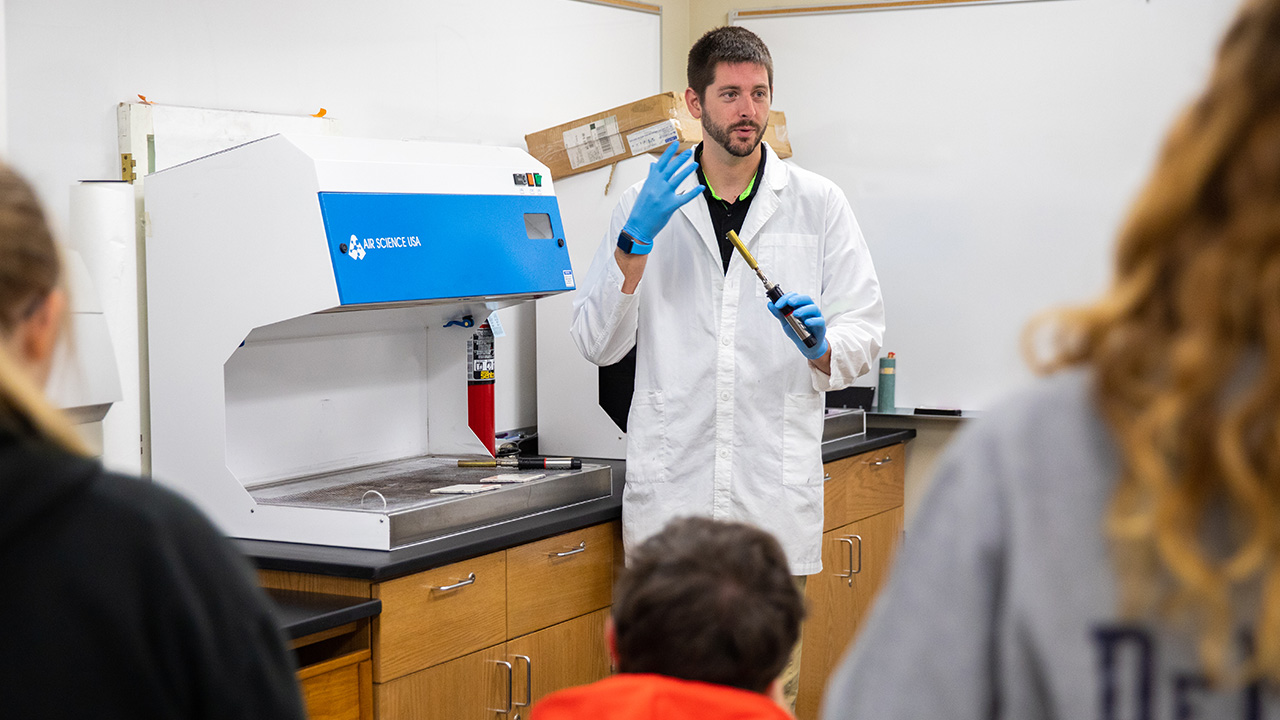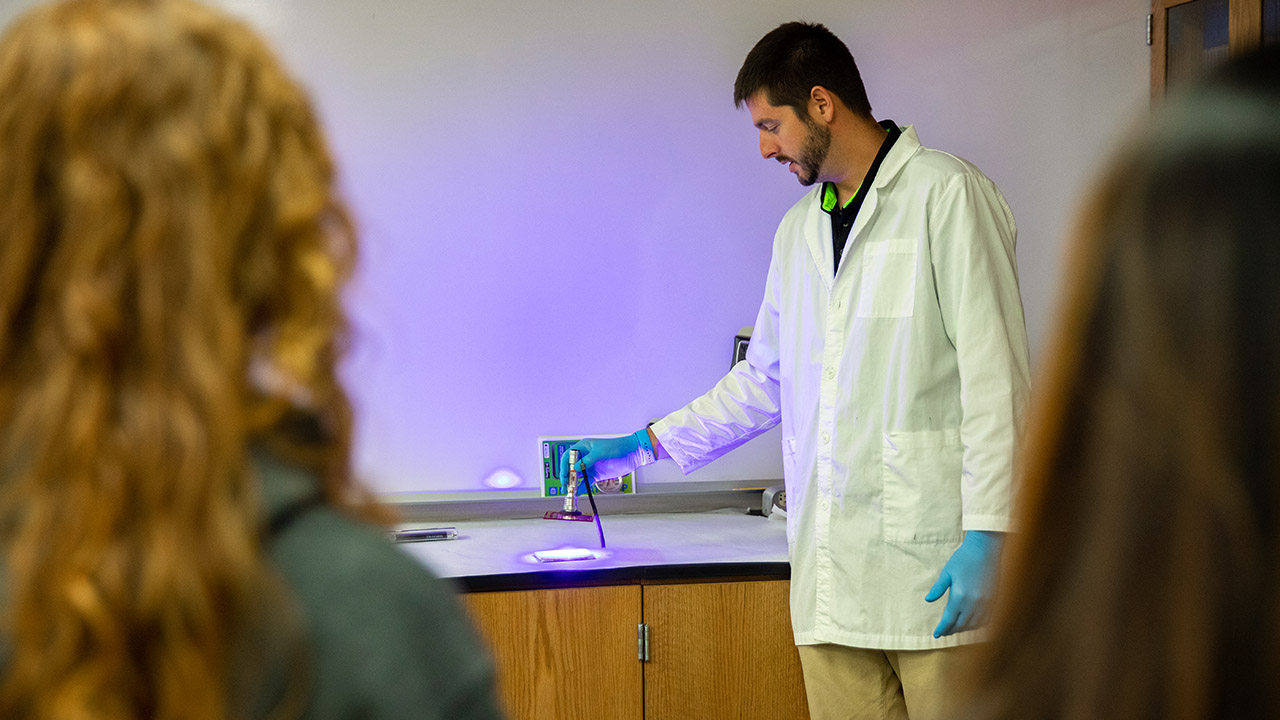

When Tim Juedes, lecturer of criminal justice at the University of Wisconsin-Platteville, considers what he loves most about teaching, the answer comes to him easily: “I love helping students learn about topics they are passionate about and want to pursue as a career.”
Juedes, who has taught forensic investigation courses at the university since spring 2015, is a UW-Platteville alumnus, earning a Bachelor of Science in criminal justice with an emphasis in forensic investigation and a minor in chemistry in 2009. His specialties are fingerprint analysis and criminalistics.
After he graduated from UW-Platteville, Juedes earned a technical diploma from the Law Enforcement Recruit Academy at Fox Valley Technical College in Appleton, Wisconsin. Following, he served in a variety of positions that allowed him to further hone his criminal justice and forensic investigation skills, including transportation security officer at the Transportation Security Administration in Denver, Colorado; fingerprint technician at the San Francisco Police Department in California; and Automated Fingerprint Identification System technician at the Wisconsin State Crime Lab in Madison, Wisconsin.
In May 2018, Juedes capped off his academic pursuits by earning a Master of Forensic Science with a specialization in crime scene investigation from National University in La Jolla, California.
What is most rewarding about fingerprint analysis, criminalistics and other research areas that interest you?
I have always liked the sciences and law enforcement. As a student, I took chemistry, criminal justice and forensic investigation courses, but I fell in love with fingerprints and I knew that was what I wanted to do. Being a fingerprint analyst requires the ability to pay attention to detail, very small detail. Because of this and my personal belief that fingerprinting has a lot of similarities to puzzles, I knew that it was the right move for me.
I continually conduct research regarding how our climate in Southwest Wisconsin impacts insects colonizing deceased individuals. This research is conducted using pig cadavers that are left on the surface, partially buried and buried. In the future, it is my hope to begin research on how our climate in Southwest Wisconsin impacts the vegetation growing on top of clandestine graves.
In what ways do you hope to impact your students’ educational experiences?
I hope that my teaching will give students the proper information and hands-on experience to get them hired in a career about which they are passionate.
How do you keep students fully engaged in the learning process?
I try to keep students engaged in learning about the different aspects of the forensic investigation field by providing them with informative readings, lectures and hands-on activities and assignments. The curriculum at UW-Platteville allows our students to obtain enough information to get them hired in their desired career field.
When I was a student at UW-Platteville, my professors fully engaged me in the learning process. The education I received at UW-Platteville helped prepare me for my future positions by providing me with the proper information I needed to succeed. I loved the content that was covered, along with the hands-on exercises that instructors required us to complete. The instructors were very knowledgeable about the curriculum, which allowed them to properly critique all of the assignments.
What hands-on learning activities are your students engaged in this fall? Why are these experiences so important?
This fall, students in my courses have the opportunity to engage in many hands-on experiences that range from fingerprint analysis on our Automated Fingerprint Identification System to analyzing evidence that they collect when processing crime scenes. I also will have the students contact professionals working in the field so they can learn and research different positions within the Forensic Investigation System.
These hands-on learning experiences will help students understand the requirements to be employed in those positions. It is my hope that students will focus on what those professionals say and take the initiative to further their education in topics that interest them. This can be done by conducting research, either working with faculty and staff members or by reading about it themselves.
What is your hope for your students, now and in the future? How do you hope your students impact the criminal justice and forensic investigation fields once they graduate?
I hope students take away the proper tools and knowledge, not only from my courses but the other forensic investigation courses, so they can be successful in their careers.
It is my hope that our students, upon graduating, will pursue careers that they choose and excel in them. It is also my hope that after they establish themselves in their careers, they will further and/or improve the fields they are in by conducting and publishing research.
To nominate someone for the Pioneer Spotlight, contact pr@uwplatt.edu.